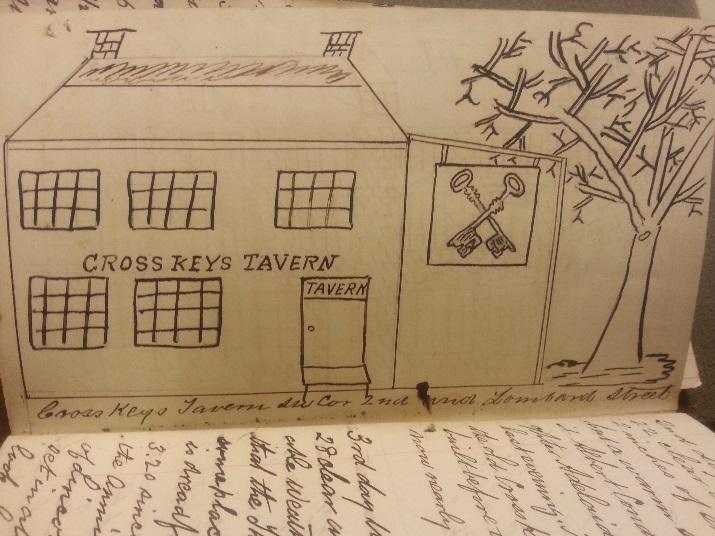Hidden Collections - An Intro

A page from Jacob R. Elfreth Jr.Ís diary.
Details
An introduction by Kara Flynn, who will be working to catalog Quaker diaries, journals, commonplace books, and small manuscript collections as part of a CLIR grant.
Hello Haverford! My name is Kara, and over the next year, I will be working to catalog Quaker diaries, journals, commonplace books, and small manuscript collections as part of a CLIR grant. For those of you unfamiliar with the acronym, CLIR stands for the Council on Library and Information Resources, a nonprofit that works with libraries and other cultural institutions to improve access to "hidden collections." The Quaker collections at Haverford are full of hidden treasures, and it is my job to make these resources more easily accessible to researchers, professors, and students by cataloging, organizing, and creating online finding aids for the various items in the collection.
I am thrilled to be working with Haverford's Quaker collections, and I'm learning new things every day, particularly about Quakers and Quakerism. Since this grant was designed for a post-baccalaureate, I started working here at Haverford just two weeks after graduating with my B.A. from the University of Puget Sound in Tacoma, Washington. I majored in English Literature and Comparative Sociology, and while there I interned with the Archives and Special Collections last summer, and worked as an Archives Assistant during my senior year.
I've been here just about a month now and have been able to process a few different collections. This month I've been working through collections of diaries and journals, which has provided me with an intriguing glimpse into the 18th and 19th centuries. Many of the authors of the diary collections I've been working with wrote diaries for the majority of their adult lives, and as a result, I not only get to experience a range of historical periods and events, I also feel as if I've gotten to know some of the people whose diaries I've been cataloging. I've witnessed the Revolutionary and Civil wars and the political and civil upheaval that accompanied them. I've watched as couples courted, fell in love, and married, and I've reached a new appreciation for mothers as I've watched them care for seemingly perpetually sick children. I have experienced, in much too graphic detail, the "cures" for a variety of medical complaints, and, let me just say that even if I learned nothing else from this, I have developed a keen appreciation for modern medicine. And basic understandings of hygiene.
Most recently, I've been working with Jacob R. Elfreth Jr.'s diaries. Elfreth's discussions of the Civil War were intriguing, but I have been particularly interested in Elfreth's entries related to urban development in Philadelphia. Elfreth's diaries span from 1861_1924, and he witnessed the urban landscape of Philadelphia change drastically over the years. Often, when a building was torn down, Elfreth provided a description of the building's location and historical importance, and included a sketch of the original building. Working with some of the larger collections day in and day out can be a bit monotonous at times, but coming across a new sketch of Elfreth's always brightens my day.



